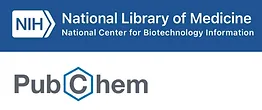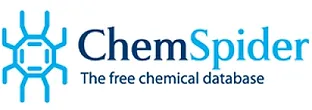AGGIORNAMENTO SCIENTIFICO IN TEMPO REALE FORNITO DA:

Top News
- Autism-Linked Gene Alters Face Perception in Dogsby Neuroscience News on 4 Aprile 2025
A new study shows that Beagle dogs with mutations in the autism-linked Shank3 gene exhibit face processing abnormalities similar to those seen in humans with ASD. Using behavioral tests, eye-tracking, and brain recordings, researchers found that these dogs paid less attention to faces—especially the eye region—and showed delays in brain responses to facial cues.
- Heart Failure Accelerates Brain Agingby Neuroscience News on 4 Aprile 2025
A large new study reveals that heart failure significantly accelerates cognitive decline, causing affected individuals to mentally age a decade within just seven years of diagnosis. Researchers tracked nearly 30,000 adults and found that heart failure was associated with a sharp drop in cognitive function at diagnosis and a faster decline in global cognition and executive function over time.
- MicroRNAs Guide Purkinje Cell Growth, Shedding Light on Autism Linksby Neuroscience News on 3 Aprile 2025
A new study reveals that microRNAs—tiny regulators of gene expression—play a crucial role in shaping Purkinje cells, rare brain neurons linked to movement and neurodevelopmental disorders. Using advanced genetic tools, researchers showed that disabling microRNAs during specific developmental windows impaired the cells’ growth and ability to form key connections.
- Key Brain Gateway to Conscious Perception Identifiedby Neuroscience News on 3 Aprile 2025
A new study using intracranial recordings in humans reveals that the thalamus, particularly its higher-order regions, plays a central role in triggering conscious perception. By monitoring brain activity during a visual task, researchers found that the intralaminar and medial thalamic nuclei activated before the prefrontal cortex, suggesting the thalamus initiates conscious awareness.
- Listening Builds Trust, But Stories Change Mindsby Neuroscience News on 3 Aprile 2025
A new study challenges the widely held belief that high-quality, nonjudgmental listening is essential for persuasion. While good listening improves how people feel about a conversation and reduces defensiveness, it doesn’t enhance the impact of persuasive messages.
- Study Reveals Brain Circuits That Drive Political Passion and Intensityby Neuroscience News on 3 Aprile 2025
A new study has identified specific brain networks that regulate the intensity of political engagement, regardless of ideology. By analyzing Vietnam War veterans with localized brain injuries, researchers found that damage to the prefrontal cortex increased political fervor, while damage to the amygdala reduced it.
- Heavy Alcohol Use Causes Long-Term Brain Damageby Neuroscience News on 2 Aprile 2025
For the first time, scientists have shown how heavy alcohol use leads to long-term cognitive impairments by damaging brain circuits responsible for decision-making. In a rat model, animals exposed to high alcohol levels performed significantly worse on a complex, shifting-reward task, even after nearly three months of sobriety.
- Pregnant Women Face Lower Odds of Long COVIDby Neuroscience News on 2 Aprile 2025
A large study of over 72,000 pregnant women found that those infected with SARS-CoV-2 during pregnancy were less likely to develop Long COVID than non-pregnant peers. Using data from two national databases, researchers found consistent results: about 16% of pregnant women developed Long COVID symptoms versus 19% of matched non-pregnant women.
- Brain-to-Voice AI Streams Natural Speech for People with Paralysisby Neuroscience News on 2 Aprile 2025
Researchers have developed a brain-computer interface that can synthesize natural-sounding speech from brain activity in near real time, restoring a voice to people with severe paralysis. The system decodes signals from the motor cortex and uses AI to transform them into audible speech with minimal delay—less than one second.
- Weight Training May Slow Cognitive Decline and Protect Aging Brainsby Neuroscience News on 2 Aprile 2025
A new study shows that weight training not only boosts physical strength but also protects the brains of older adults with mild cognitive impairment. After six months of twice-weekly resistance training, participants showed memory improvements and protection against brain atrophy in regions linked to Alzheimer’s disease.
- Screen Time in Bed Linked to Less Sleep, Higher Insomnia Riskby Neuroscience News on 2 Aprile 2025
A new study of over 45,000 young adults found that using screens in bed increases the risk of insomnia by 59% and cuts sleep by 24 minutes. Surprisingly, the type of activity—whether social media, movies, or studying—didn’t make a difference; it was the screen time itself that mattered most.
- Maternal Inflammation May Disrupt Infant Brain Wiringby Neuroscience News on 1 Aprile 2025
A new study reveals that inflammation during pregnancy may impair neurodevelopment in infants by reducing CD11c-positive microglia—key immune cells that support brain myelination. These cells produce IGF-1, a protein critical for forming the myelin sheath that helps nerve signals travel efficiently.

















